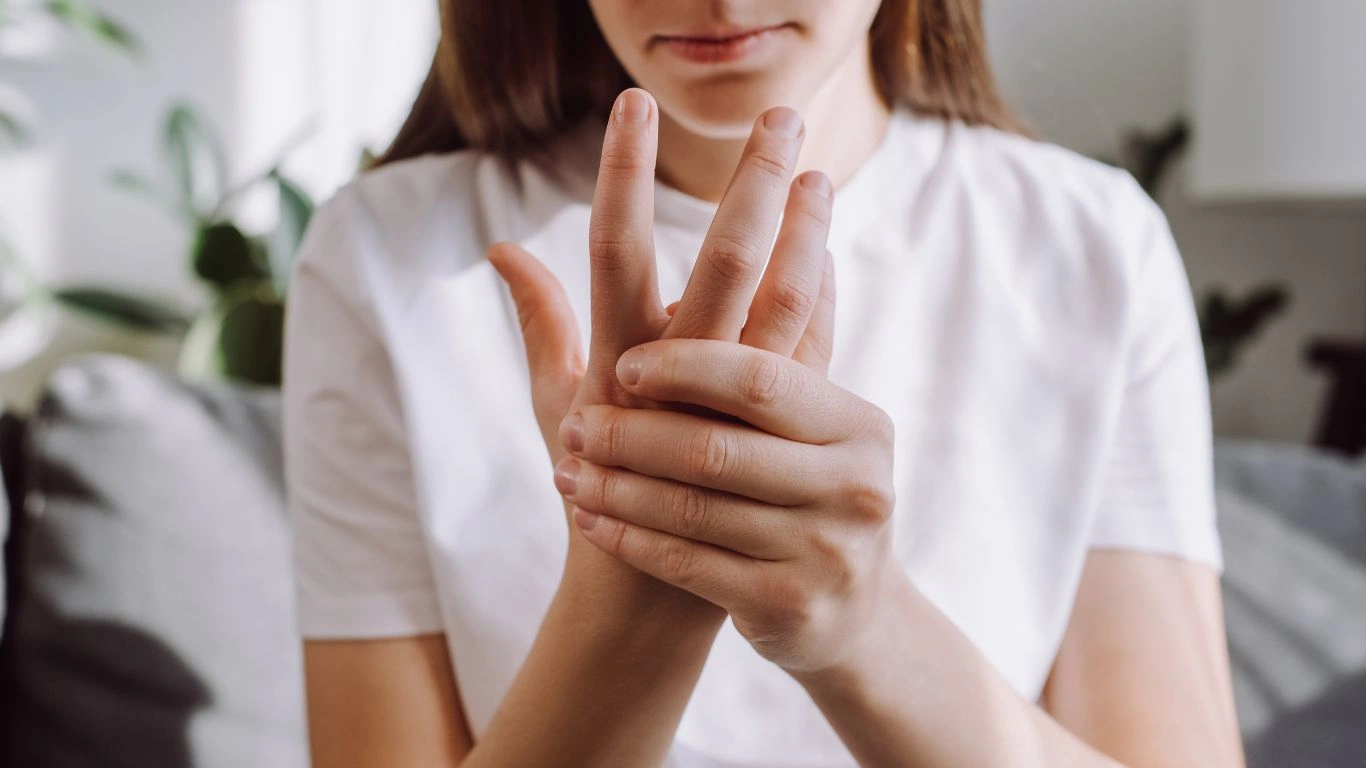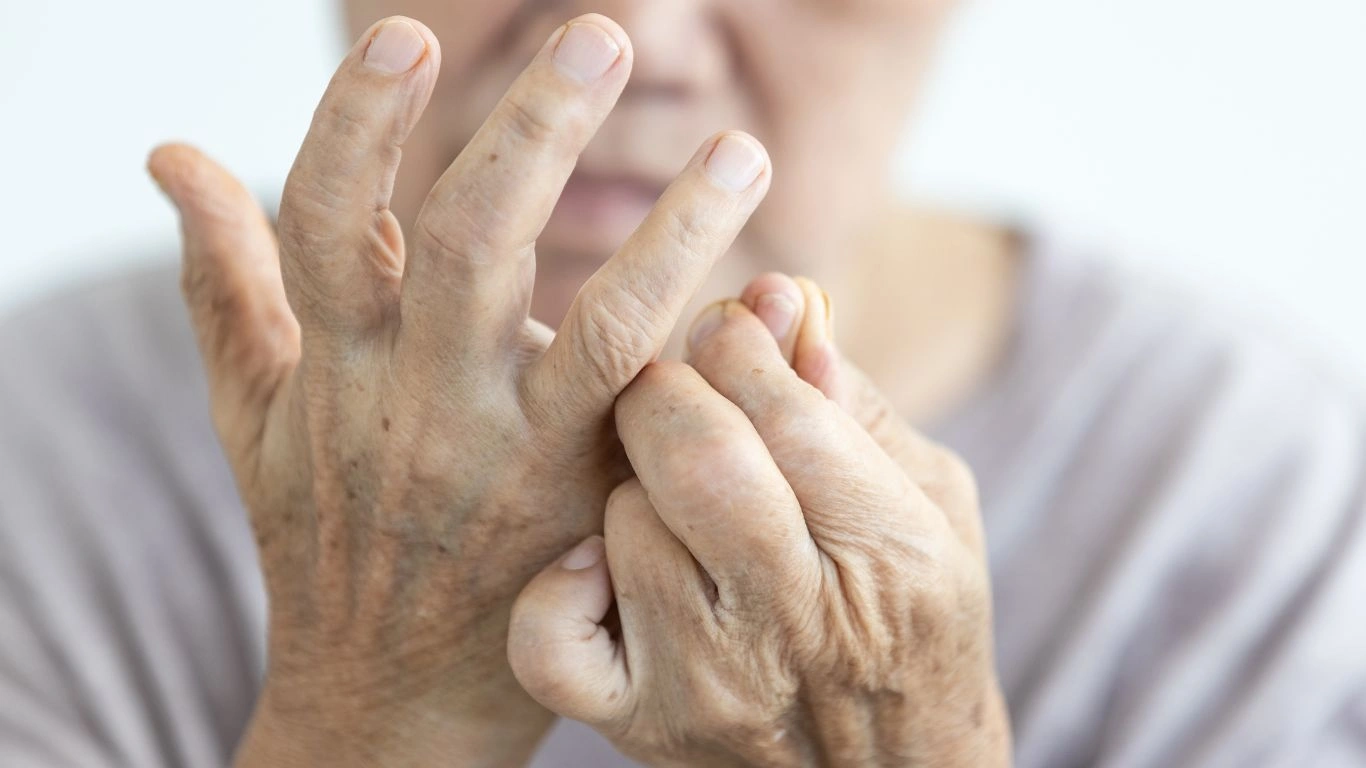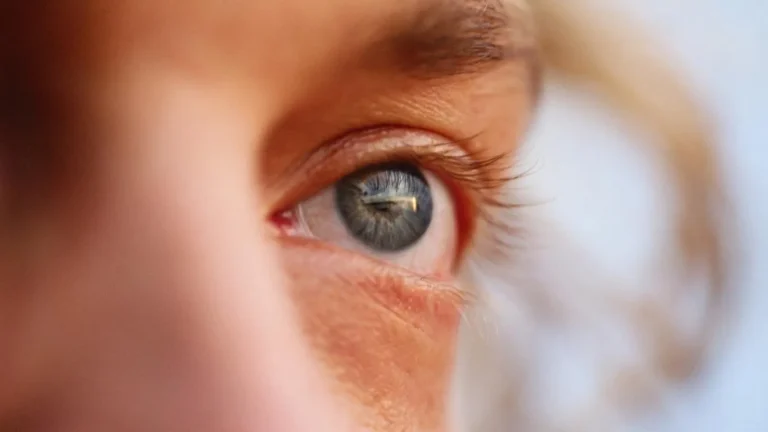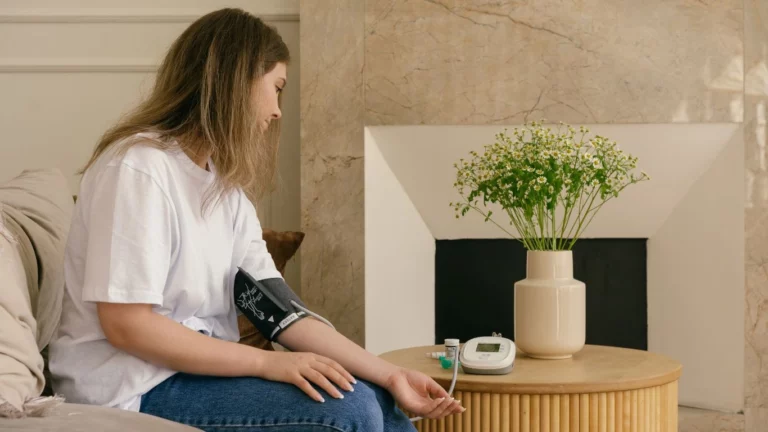Conquering RA and Poor Sleep Patterns: Proven Fixes That Actually Work
Living with RA and poor sleep patterns can feel like you’re stuck in a vicious cycle that just keeps spinning. As a Rheumatology nurse practitioner, I’ve seen it firsthand—patients tossing and turning at night, only to wake up feeling like they ran a marathon in their sleep. And let me tell you, it’s not just about being tired. Poor sleep can crank up your inflammation levels, mess with your mood, and make it harder for medications to do their job. I’ve heard so many of my patients say things like, “I slept, but I feel like I didn’t sleep at all.” That’s not okay—and it’s more common than you might think.
What’s Really Going On Between RA and Poor Sleep?

If you’re dealing with RA (rheumatoid arthritis), you already know how unpredictable it can be. One day you’re okay, the next day your joints are stiff, swollen, and screaming. But what many people don’t realize is how closely linked those symptoms are to the quality of your sleep.
In fact, RA and poor sleep patterns are often tangled up in a two-way street. The joint pain, inflammation, and fatigue that come with RA can make it hard to fall—and stay—asleep. And guess what? That poor sleep then triggers more inflammation, worsening your RA symptoms. It’s a loop that no one wants to be caught in.
Pain That Wakes You Up
This is one of the top complaints I hear in the clinic. Patients tell me their knees, hands, or shoulders start throbbing as soon as they lay down—or they get woken up multiple times a night because of sharp pain. It’s not just discomfort—it’s full-on pain that breaks your sleep cycle and leaves you groggy and drained the next day.
The Inflammation-Sleep Feedback Loop
Let’s talk science for just a sec. Inflammatory markers like CRP and cytokines are higher in people with poor sleep. And if you already have RA, your inflammation is already in overdrive. That’s why even one bad night of sleep can make your joints feel worse the next day. Crazy, right? It’s not just in your head—it’s happening in your immune system.
Other Sleep Disruptors in RA

Pain and inflammation are the big ones, but they’re not the only culprits. I’ve had many conversations with my patients where they’ll say something like, “I thought it was just the pain keeping me up, but then I realized my anxiety about flare-ups was just as bad.” That’s where we have to dig a little deeper.
Medications Can Interfere with Sleep
Yes, the very meds that help with RA can sometimes mess with your sleep. Prednisone, for example, is notorious for causing insomnia, especially if it’s taken later in the day. Some DMARDs and biologics can cause vivid dreams or even nighttime restlessness. It’s always a good idea to talk with your provider about when you’re taking your meds and how they may be affecting your nights.
Anxiety and Depression
RA isn’t just physical—it’s emotional. Chronic pain and the limitations it brings can take a toll on mental health. Anxiety about when the next flare might hit, or depression from feeling like your body is working against you, can absolutely affect your sleep. And I say this not just as a provider, but as someone who’s sat with patients, holding their hand during those hard conversations. Your mental health matters just as much as your joints.
Signs Your RA Is Affecting Your Sleep

- You wake up feeling just as exhausted as when you went to bed.
- You’re waking up multiple times during the night with joint pain.
- You notice your flare-ups are worse after a poor night’s sleep.
- You feel emotionally off—more irritable, anxious, or even depressed.
- You’ve tried sleep aids but they don’t help much with pain-related insomnia.
If any of these sound like your daily (or nightly) reality, you’re not alone. And the good news? There are things we can do to interrupt this cycle. I’ve helped many patients find a better rhythm—and it’s not always about another prescription. Sometimes it starts with better sleep hygiene, sometimes with adjusting meds, and sometimes with just being heard.
Breaking the Cycle: Real Strategies That Help

Alright, now that we’ve unpacked how RA and poor sleep patterns are linked (and seriously messing with each other), let’s get into what can actually help. I’ve spent years in clinic helping patients tweak their routines and treatment plans—not with cookie-cutter advice, but real-life strategies that actually work in the day-to-day. Because let’s be honest, a generic “get more rest” isn’t very helpful when your knees are on fire at 3 a.m.
Set a Gentle, Joint-Friendly Night Routine
One thing I always recommend: ease your body into rest mode. Think warm baths with Epsom salts (so soothing for stiff joints), gentle stretches, or a heating pad. A lot of my patients find that doing a short, calming bedtime ritual—even something as simple as sipping chamomile tea and journaling—can help signal to your body that it’s time to slow down. I often say, “Treat bedtime like a wind-down, not a crash landing.”
Targeting Pain Before It Wakes You
It sounds obvious, but a lot of folks forget to proactively manage their pain at night. This might mean timing your evening meds a little differently or using topical treatments like diclofenac gel on sore joints before bed. I once had a patient who started using compression gloves at night—game-changer for her hand pain. Little tweaks like that can make a world of difference.
Optimize Your Sleep Environment
Your bed should be your sanctuary. Too hot? Too cold? That’s going to affect your sleep more than you think. I always ask patients: “Is your mattress RA-friendly?” Memory foam or pressure-relieving mattresses can be a huge help, especially if your joints are sensitive to firm surfaces. And don’t underestimate the power of a supportive pillow setup—I swear by body pillows for joint alignment. They can reduce strain on hips, knees, and shoulders big time.
The Power of Sleep Hygiene (Yes, It Really Works)

I know “sleep hygiene” sounds like a buzzword, but stick with me—it’s legit. These are practical habits that support consistent, high-quality sleep. And trust me, they matter even more when you’ve got a chronic condition like RA. I’ve seen patients turn things around just by getting more intentional with their evenings.
- Stick to a routine: Going to bed and waking up at the same time helps your body regulate its natural rhythms—even on weekends.
- Limit screen time: Blue light from phones and TVs messes with melatonin production. Try turning screens off at least an hour before bed.
- Watch what you eat and drink: Heavy meals, caffeine, and alcohol can all interfere with sleep—especially if you’re sensitive.
- Move during the day: Gentle activity like walking, yoga, or water aerobics can ease RA symptoms and improve nighttime sleep.
One of my long-time patients told me she started doing five minutes of deep breathing before bed, just to center herself. No fancy apps or routines—just her, her breath, and a little patience. She said it helped her body settle and quiet the “RA chatter” in her mind. Sometimes, the smallest things can have the biggest impact.
Medications and Sleep—Getting the Timing Right

Here’s where your healthcare team comes in. RA meds can either help or hurt your sleep, depending on when and how you take them. I always tell patients, “Let’s look at the timing first before switching your meds.” Some DMARDs are better tolerated at night, while steroids like prednisone can disrupt sleep if taken too late in the day.
And don’t forget supplements. Magnesium and melatonin might help support sleep quality, especially if stress and muscle tension are part of the picture. But don’t just add things willy-nilly—always check with your provider first. I’ve had a few patients unknowingly combine supplements with RA meds in ways that didn’t play nicely.
Don’t Overlook Mental Health Support
This one’s huge. Sleep and mental health go hand-in-hand, and chronic pain adds a heavy layer. Whether it’s anxiety, depression, or just burnout from dealing with RA 24/7—it affects sleep more than most people realize. I always remind my patients: therapy, support groups, mindfulness apps—they’re not “extras,” they’re essentials. You’re not weak for needing help—you’re human.
I once had a patient who started weekly counseling for stress management. Within a month, her sleep had improved more than any med change ever had. Never underestimate the power of being heard and supported.
Creating a Long-Term Sleep and RA Management Plan

So, we’ve talked about pain management, sleep hygiene, mental health, and medication timing—but what ties it all together? A consistent, personalized plan. And this is where I always emphasize: you don’t have to figure this out alone. I’ve worked with so many patients who felt overwhelmed trying to manage their RA and poor sleep patterns—but once we mapped out a real-world plan tailored to their lifestyle, everything became more doable.
Start with realistic goals. Maybe that’s improving sleep quality three nights a week. Maybe it’s fewer flare-related wakeups. From there, layer in support from your rheumatologist, primary care provider, maybe even a sleep specialist or mental health therapist. A team-based approach—especially when RA gets complicated—can be a total game-changer.
Track It to Hack It
Okay, I know not everyone loves journaling—but hear me out. Even a simple notes app on your phone can be a goldmine. I always tell my patients to jot down things like:
- What time they went to bed and woke up
- How many times they woke up during the night
- Any pain, stiffness, or mood issues upon waking
- Medication timing and what they ate/drank before bed
After a week or two, patterns start to show up—and that gives us something solid to work with. Plus, when you bring that data into your next appointment? Trust me, your provider will thank you. It’s like giving us a flashlight in a dark tunnel.
Support Systems Make All the Difference

If you’re living with RA, you already know that it’s more than just a physical condition—it touches every part of your life. And when you’re sleep-deprived on top of it? It’s easy to feel isolated, even hopeless. This is why I often recommend connecting with others who truly understand.
Whether it’s a local support group, online community, or even a one-on-one connection through a patient network, having people who “get it” can be incredibly healing. I’ve had patients come back and say, “Talking to someone going through the same thing made me feel like I wasn’t broken.” That kind of emotional validation can directly impact sleep quality too—it lowers stress, improves mood, and reduces that internal noise that keeps us awake at night.
Mind-Body Practices That Actually Work
Let’s touch on something that’s gaining traction for good reason—mind-body approaches. Yoga, guided meditation, tai chi, progressive muscle relaxation—these aren’t just trendy wellness buzzwords. There’s actual science behind their role in calming the nervous system, reducing inflammation, and easing pain perception. Even just five minutes of mindful breathing before bed can help your brain shift gears and signal your body to rest.
I personally use and recommend apps like Insight Timer or Calm for my patients. And no, you don’t need to be super spiritual or bend like a pretzel—just a willingness to show up for yourself, night after night.
RA and Sleep: Let’s Talk to Your Provider
Too many folks think sleep issues are just something they have to “deal with” when they have RA. Nope. It’s absolutely something you should bring up at every appointment. Tell your provider how often you’re waking, how rested you feel, and what you’ve already tried. You deserve a collaborative approach—not just another pill, but a full-picture conversation.
And honestly? Sometimes even I, as a nurse practitioner, need a reminder to ask deeper questions about sleep. So advocate for yourself. You’re not being dramatic—you’re being proactive.
Don’t Wait Until You’re Desperate
I’ve seen patients wait until their sleep is in total crisis before mentioning it. By then, they’re exhausted, mentally drained, and sometimes spiraling into depression. If there’s one takeaway from all this, let it be this: early intervention is key. The sooner we address sleep issues, the easier it is to untangle the web.
References
- https://www.arthritis.org/
- https://www.sleepfoundation.org/
- https://www.rheumatology.org/
- https://www.mayoclinic.org/
- https://www.nih.gov/
Disclaimer
This article is for informational purposes only and is not intended as a substitute for medical advice, diagnosis, or treatment. Always consult your healthcare provider before making any changes to your medications, lifestyle, or treatment plan. The views expressed are based on clinical experience and patient feedback, and may not apply to every individual. Every RA journey is unique—your care should be too.

Tarra Nugroho is a dedicated Nurse Practitioner with a strong foundation in family and preventive care. She brings both compassion and clinical expertise to her practice, focusing on patient-centered care and health education. As a contributor to Healthusias.com, Tarra translates medical knowledge into clear, empowering articles on topics like women’s health, chronic disease management, and lifestyle medicine. Her mission is simple: help people feel seen, heard, and informed—both in the clinic and through the content she creates. When she’s not caring for patients, Tarra enjoys weekend hikes, plant-based cooking, and curling up with a good health podcast.







